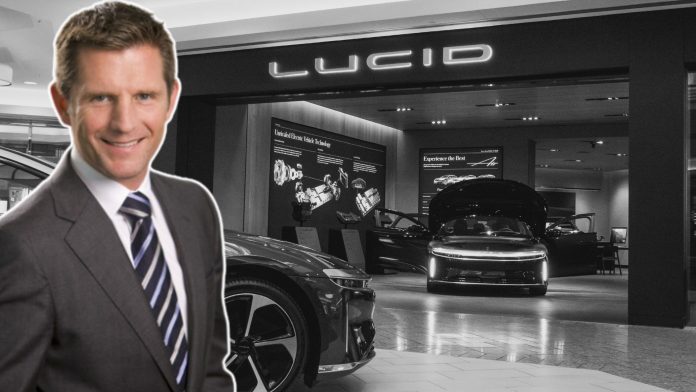Lucid Motors’ interim CEO, Marc Winterhoff, cautioned that President Donald Trump’s latest tariffs will raise the cost of producing vehicles in the U.S., as automakers still rely on global supply chains for key components. Speaking from Panasonic’s De Soto, Kansas battery facility, Winterhoff emphasized that even domestic EV makers must import raw materials, especially for batteries, which are subject to new levies.
The EV maker is now accelerating efforts to localize battery material sourcing, including a new supply deal with Graphite One for U.S.-processed graphite. The company’s current partnership with Panasonic, which began in 2022, is being reshaped to offset the cost burden of the tariff regime.
Here’s why it matters:
Rising vehicle costs driven by tariffs may directly impact pricing strategies and affordability for consumers, particularly in the EV segment. Dealers could see slower turnover of electric inventory if prices climb beyond consumer expectations, especially in a market already facing affordability concerns. As automakers like Lucid attempt to localize their supply chains to contain costs, dealers should closely monitor how these shifts impact EV pricing, incentives, and buyer interest.
Key takeaways:
- Tariffs expected to raise vehicle prices
Lucid’s CEO stated that Trump’s tariff policies will increase the cost of vehicles for American consumers, even when they are built in the U.S. - Global supply chain still critical
Winterhoff emphasized that parts and raw materials, including key components for EV batteries, often come from abroad despite domestic assembly. - Lucid seeks localized battery materials
The EV maker signed a deal with Graphite One to source more U.S.-processed graphite, aiming to reduce reliance on foreign supply chains. - Panasonic partnership under pressure
Lucid continues to work with Panasonic for battery cells but noted the need to shift more raw material sourcing to U.S. producers post-tariffs. - New battery plant won’t help yet
Panasonic’s De Soto, Kansas facility is ramping up, but Lucid won’t begin using those U.S.-made cells in vehicles until sometime in 2026.



